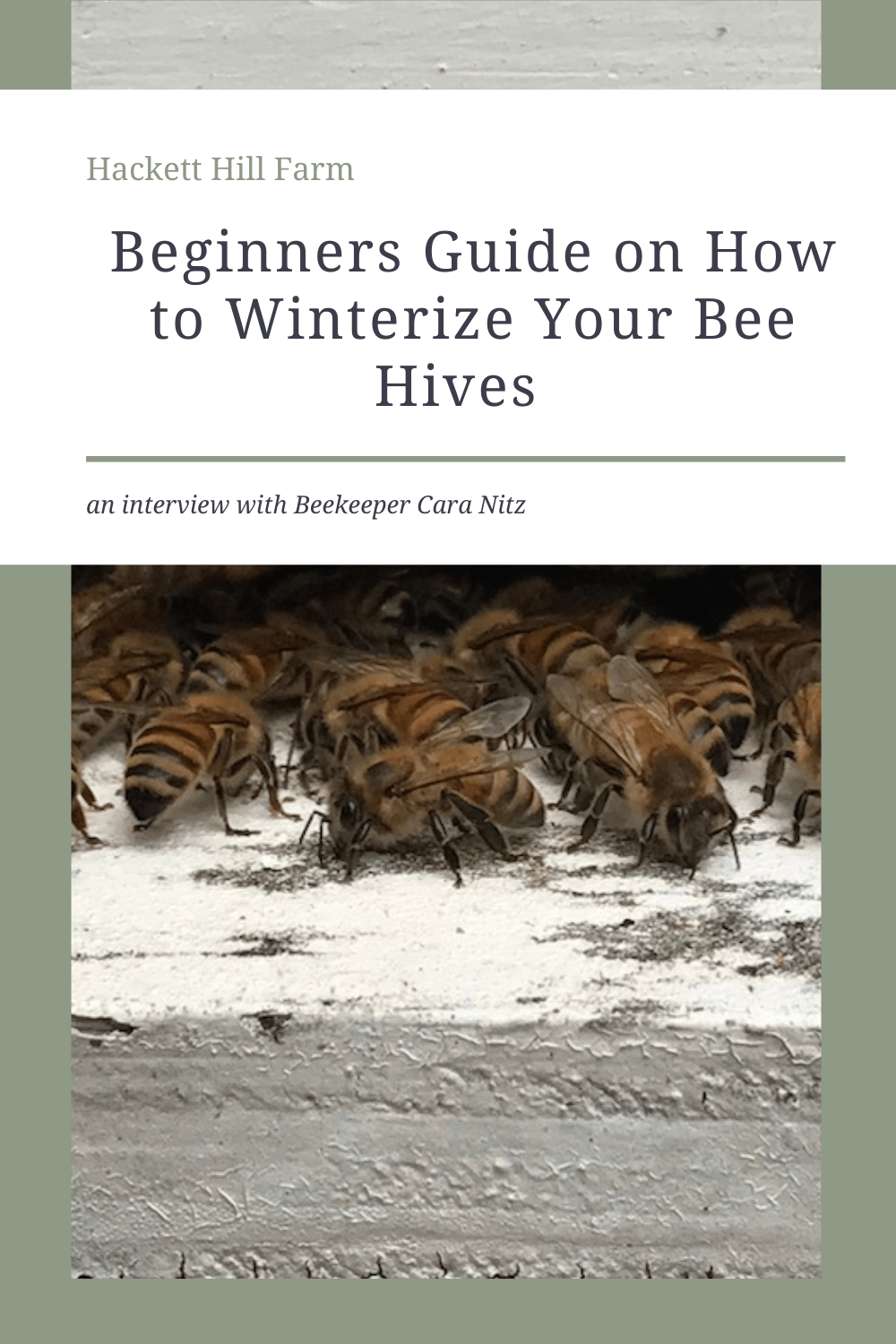
Beginners Guide on How to Winterize Your Bee Hives (An Interview)
Today we are talking about bee keeping on the homestead and what you need to know on how to winterize your bee hives. We will talk with homesteader and bee keeper Cara Nitz and get her thoughts on keeping bees and how to prepare them for the long winter ahead.
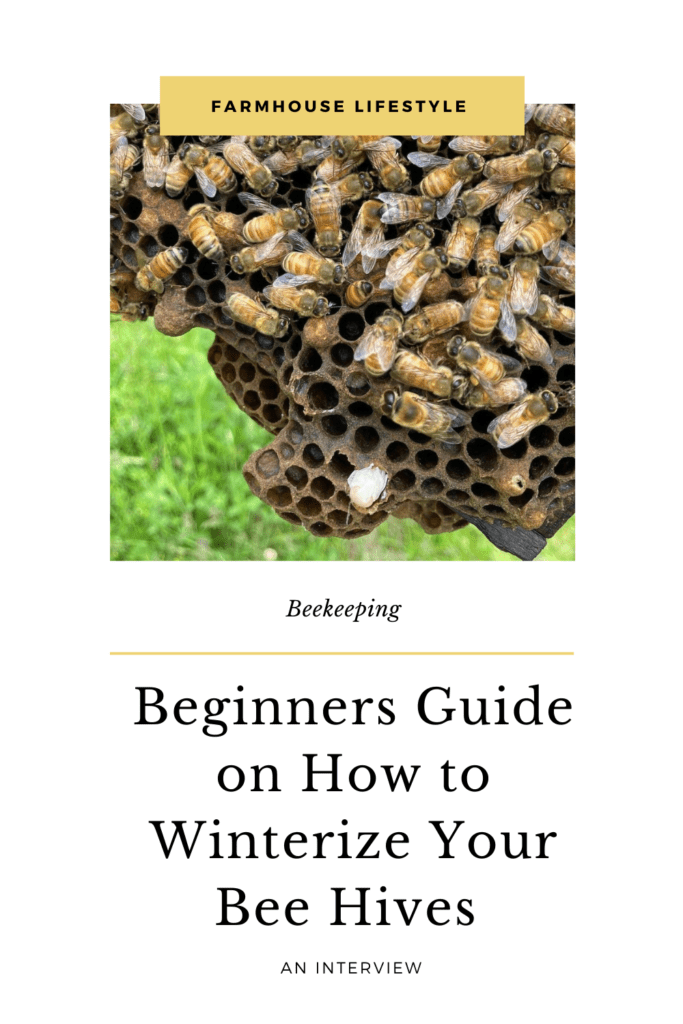
Bees and homesteading have gone hand in hand for well over four thousand years. The first kept hives consisting of little more than holes in rocky mountainsides or roughly woven baskets. Today’s beekeeping is much less crude and is quickly becoming a popular hobby around the world!
Bee keeping can be a daunting task to undertake if you are not sure where to start. There is a wealth of information available out there which makes it all the more difficult to sift through it all sometimes.
Today we are going to be focusing our bee keeping discussion on how to winterize your bee hives in this beginners guide.
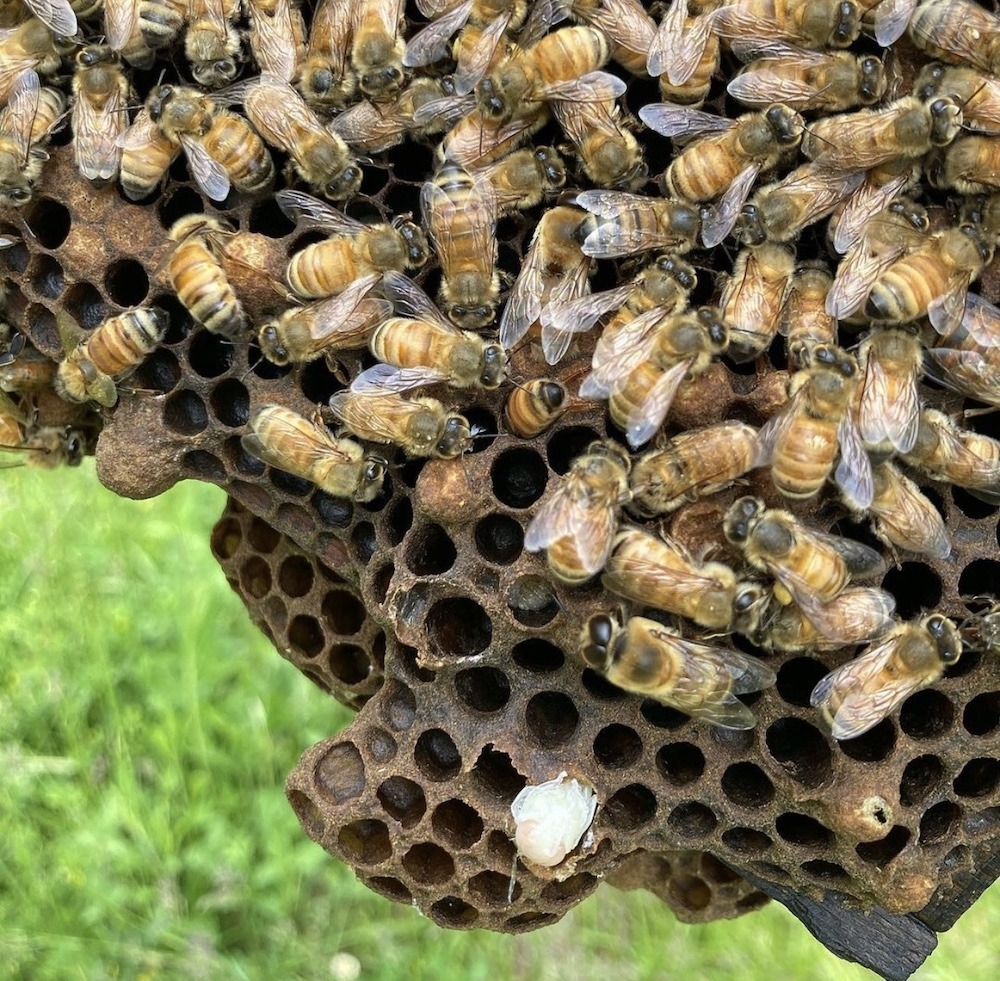
Why Should I Keep Bees on My Homestead
First let’s talk about the benefits of keeping bees for a moment. If you are on the fence about whether or not to keep bees here are some of our favorite reasons for keeping these beneficial critters on your homestead.
Pollination
If you are a gardener, you love to see pollinators in your garden.
Pollinators, whether butterflies, native bees, or honey bees, are the hardest workers in your garden. They travel flower to flower spreading the pollen they collect on their little bodies pollinating your crops and flowers to give your garden a big boost!
Bees are the world’s greatest pollinators, and an extraordinary addition to the homestead.
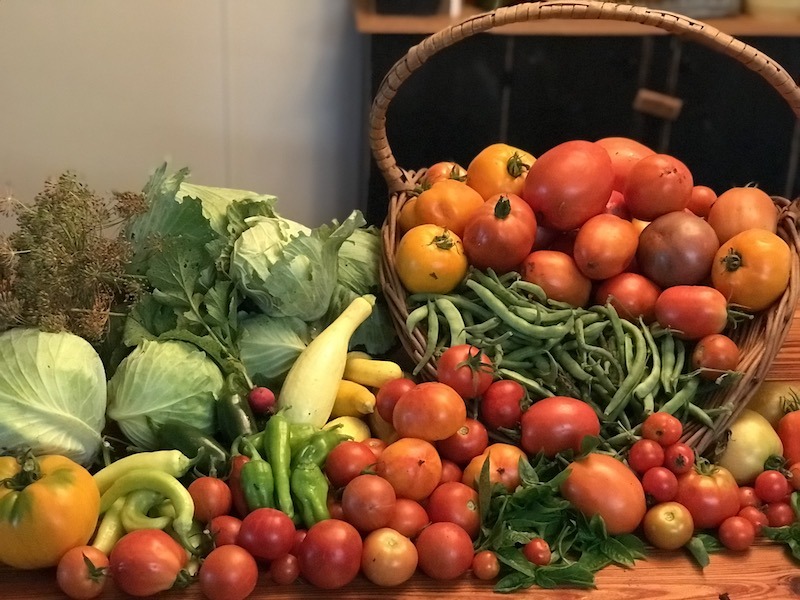
Honey and its uses
Honey is the most common reason people start keeping bees. Honey is not only delicious, but can be used in so many different things on the homestead!
Known for its antioxidant and antiseptic properties, honey is good for you inside and out. It can be used to heal wounds, in medicines, and as a substitute for sugar! Talk about multipurpose!
We love cooking with honey in dishes like this Honey Mustards Pork Tenderloin.
It can also be used medicinally to keep you and your family healthy. You can learn more about how to use honey for healing in things like oxymels in our post on herbal remedies.
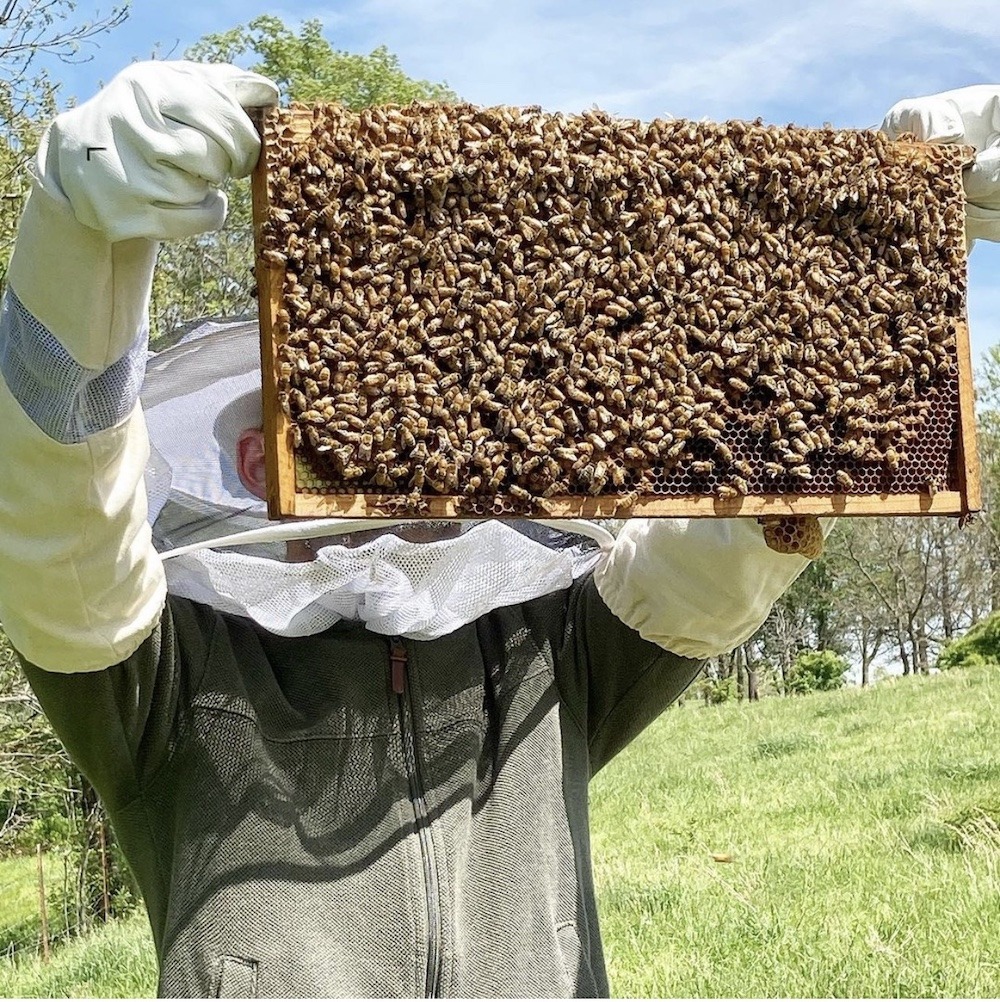
Beeswax and its uses
Beeswax is another homestead multipurpose byproduct from honey bees. Beeswax can be used for both beauty and home hacks. Use beeswax to make candles, polish furniture, or waterproof your boots.
You can also use Beeswax wrap as a more sustainable solution to plastic wrap! Mind blown!
Beeswax can also be used in beauty products like body butter or lip balm to keep your skin soft and moisturized!
With so many uses, it is easy to see why beekeeping is gaining in popularity and why they are a homestead essential.
Now that we know a little more about the benefits of keeping bees and talk about what these critters need to have a safe winter.

How do I Care For My Bees During the Winter Months
While bees are pretty self sufficient and need very little from their humans, there are a few things you can do to help ensure your bees have a safe and happy winter.
There are a few reasons why bee colonies do not make it through the cold winter months. These reasons are:
- Bees do not have enough honey to feed the colony
- Colonies are too weak or small to make enough heat to stay warm
- Inadequate stores of pollen
- Diseases such as winter dysentary
- Loss of a queen
In order to help keep your hives safe, happy, and strong there are a few things you can do to winterize your bee hives.
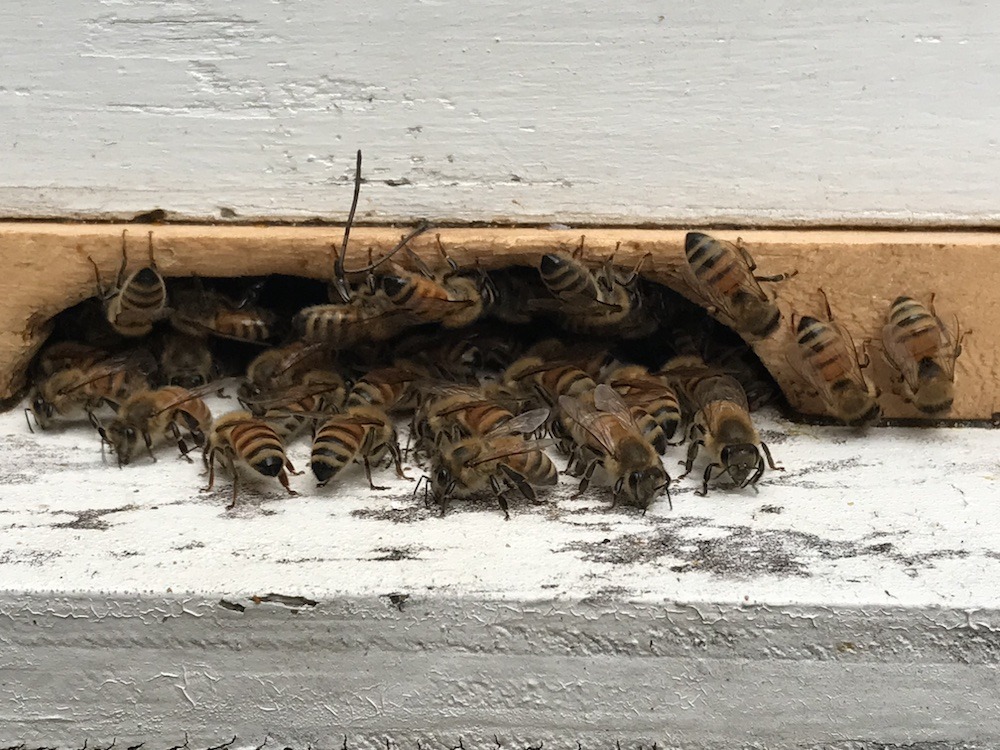
Adequate Heat
First your hive should be kept adequately warm. Bees will huddle together during the cold winter months vibrating their bodies to maintain a temperature around 95 degrees in the hives. When a bee in the center becomes too hot, she will move to the outside of the group. This dance will last throughout the winter months as bees move in and out of the warm zone.
You can aid in keeping temperatures at this toasty level by sheltering the entrance from piercing winds and rains. This will also prevent the hive from becoming damp which can cause disease.
Some bee keepers in very cold climates will also wrap their hives to help maintain this warm temp. While wrapping is not required, it does help to ensure a warm and dry hive.
The benefit of these types of practices is that the more help the bees have to keep the hive warm, the less work they will have to do. The less work they have to do, the less honey they will consume during the winter months.
Adequate Honey
Secondly, it is critical that the hive has enough honey to withstand a long winter. A hive can eat up to 90 pounds of honey in extremely cold climates!
Make sure when robbing the hive you bare in mind that these little critters will need the honey to sustain them throughout the winter. You can help to ensure this by feeding sugar water in the fall and making sure to leave enough honey in the hive.
Adequate Ventilation
Third, your hives should have good ventilation. Poor ventilation in the hive is the leading cause of disentary. Good ventilation ensures a dry hive throughout the winter
Adequate Size
Lastly, if you have hives that are low in number, it is best to combine them throughout the winter. This ensures you have a strong colony that can work together to keep warm during the winter months.
Now that we have discussed some of the ways you can winterize your bee hives, let’s meet Cara and learn more about how she cares for and prepares bees for winter on the homestead!
Meet The Homesteader!
Cara is mom to five and has been in the homesteading game for almost a year now. She homeschools and is always coming up with great ways to keep her kiddos learning! Her YouTube channel is full of great homesteading tips and farmhouse renovations that you are not going to want to miss!
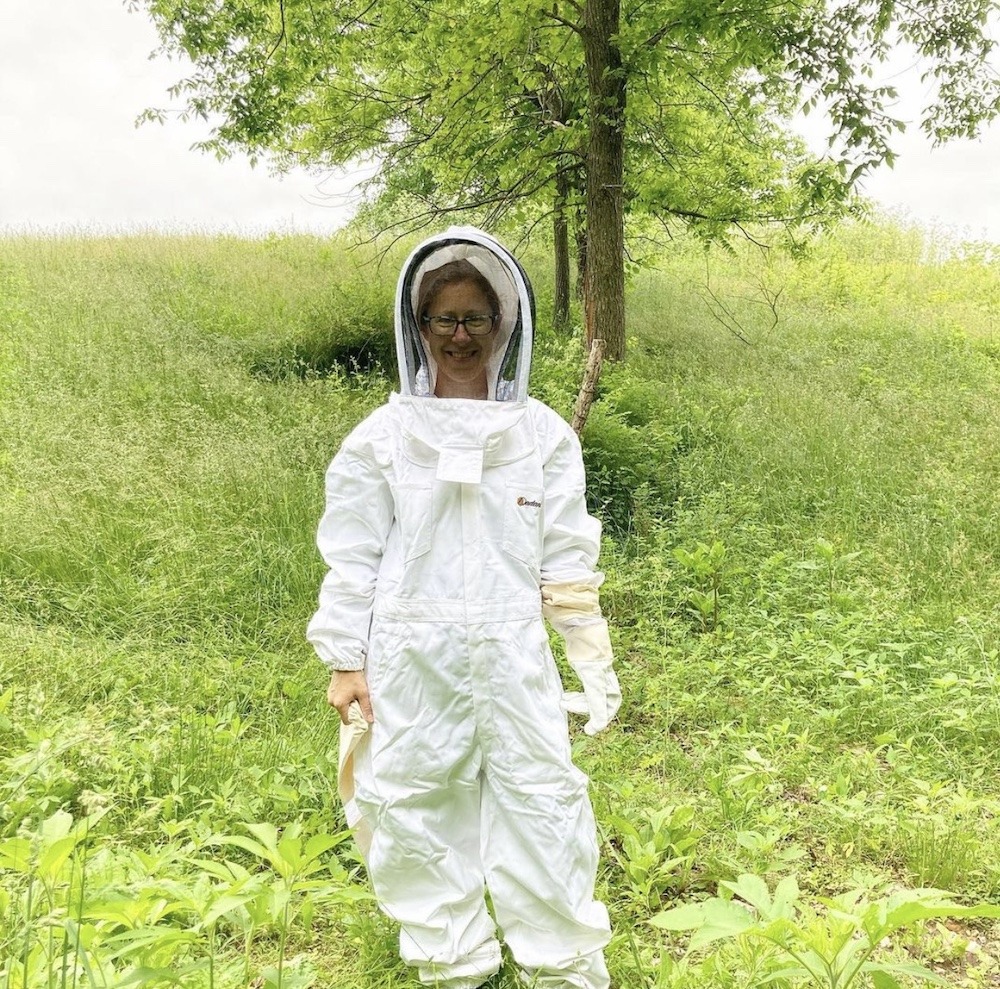
The Interview
How long have you been homesteading? What brought you to this way of life?
We have been homesteading on our current 33 acres for almost a year. We were urban homesteading before this with chickens and gardening. We had a strong desire to be more self-sustainable, have more land to roam and have adventures on, and have a different way of life for our 5 kids.
As Homesteaders we are always looking towards the next season. As we head into the long winter months, how do you prepare?
Preparing for winter this year will be quite easy, compared to next year when we’ll have animals of our own and much more to do. This year, we are just picking everything from our garden, making sure our baby trees are growing well and protected as much as possible, and working with our bees to prepare them for winter.
When did you first start keeping bees and what drove you to the decision to have them as part of your homestead?
We got our bees this past Spring, and we absolutely love having them! Not only are they going to be great pollinators for our garden and fruit trees, but they also will help provide raw local honey for us. We don’t use sugar in our diet, other than raw honey and maple syrup, so this will help us be more self-sustainable. We also feel strongly about helping protect the bees and provide them with safe land free of any pesticides, herbicides and other toxins. If we kill off bees with the conventional farming and yard practices, we will have no food. They are a huge part of human survival.
How do you prepare your bees for winter? What steps do you have to take to ensure they stay happy and healthy during the winter months?
We prepare our bees for winter by first of all making sure they have enough honey stores to eat throughout the winter. Many beekeepers lose their bees during winter, so this is a critical time for us to care for our bees. We want to make sure they have an entire box full of honey. So we personally didn’t take any honey for ourselves this year, to make sure they have enough. We also have been feeding them sugar water with added Honey Be Healthy supplement twice a week or so during the past fall weeks to help them store more too. To prepare for winter, we like to check and make sure we are controlling the hive beetle population. We use a tray under our beehive filled with mineral oil to trap and kill them as the bees kick them out of the hive or they try to climb up into the hive. And it is also an important time to work on destroying mites that could destroy the hive population. So we add in Apivar strips to try to take care of that problem.
Do you have any thoughts or tips for new beekeepers?
Tips for new beekeepers? I would say – learn all you can about bees, because they are miraculous creatures and when we appreciate them for all they do, we can take better care of them. Also – get lots of opinions from other beekeepers, but in the end, make the decision that makes sense for you and your bees.
What is your families favorite way to use honey during the winter months?
We love raw honey, and we use in warm water with essential oils to support our immune system. We also use it in place of sugar in many of our recipes. Homemade fudge with raw honey? Delicious!
What is one piece of advice that you would share with new homesteaders as they start to prepare for the coming months?
I am a new homesteader, so I’ll tell you what I’m telling myself – don’t overtax yourself doing things that don’t need to be done that day. Yes, we have to prepare, but we also need to rest and enjoy the beauty of what we have.
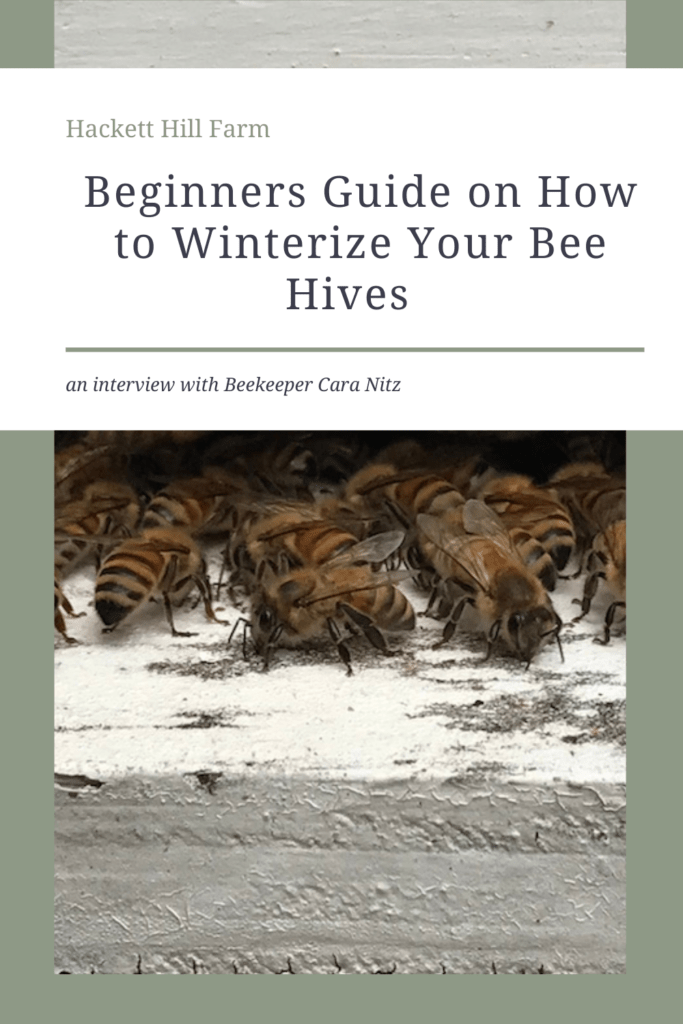
Be sure to check out Cara on Instagram, YouTube, and Facebook for more beekeeping, homesteading, and homeschooling ideas!
Homesteader Series
Check out more from our homesteaders in our winter homesteader interview series.
- Preserving Food Through Dehydrating with Halfway to Homesteading
- Herbal Remedies with It’s My Sustainable Life
- Seed Saving with The Homestead Mother
Keep an eye out for more great posts from our homesteaders!
Let us know how you are loving this series below in the comments!
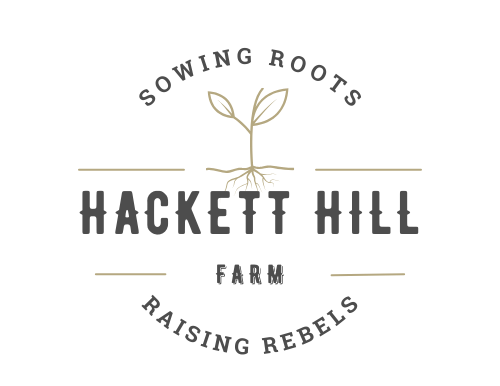

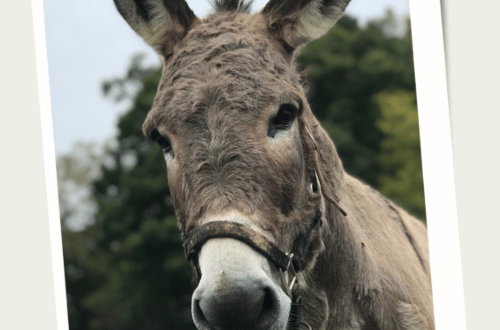
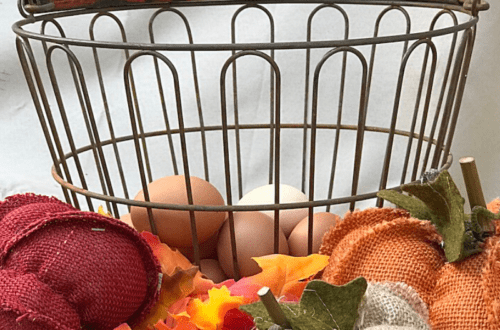
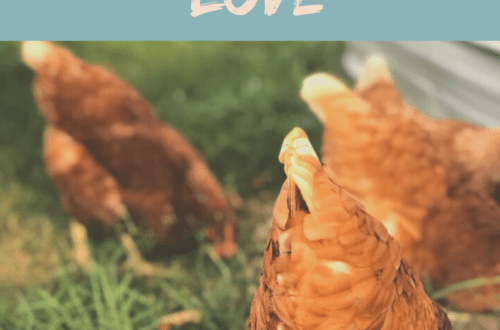
5 Comments
Jamieadstories
My step dad keeps bees, so I shall pass it on.
Rosie 🌱🌳 🌎💚 (@greenrosielife)
Keeping bees is on my to to list. First I just need to get over a few irrational fears around accidentally being responsible for killing the entire hive.
Keep Calm & Drink Coffee
This post is very interesting.
i was just discussing with my husband about keeping bees a couple of days ago.
I think it is particularly important since the number of bees is dramatically decreasing.
So thanks a lot!
hacketthillfarm
Thanks so much! I agree that bee keeping is more important now than ever!
Molly @ Transatlantic Notes
I had no idea that there was so many interesting aspects of beekeeping — thanks for sharing this info; it makes me appreciate this that much more!